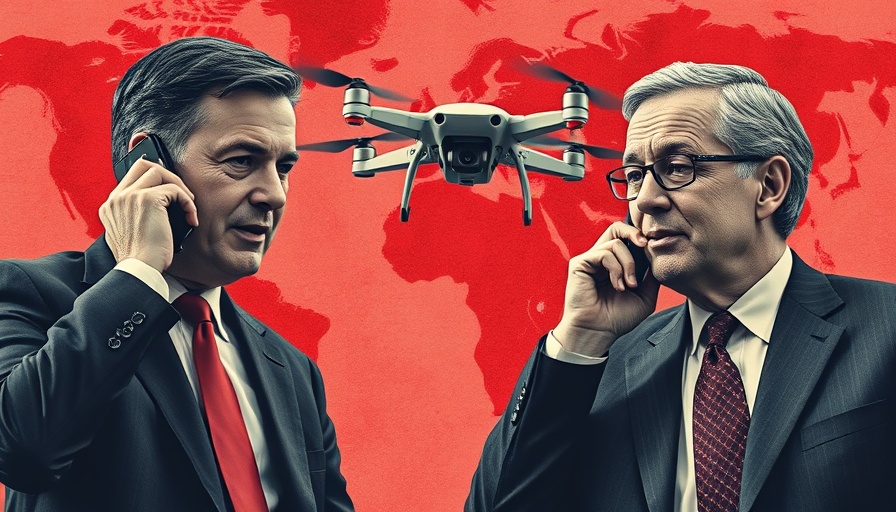
Silicon Valley's Tech Tug-of-War: Drones at the Center of U.S.-China Relations
For years, Silicon Valley has honed in on a growing concern: the dominance of Chinese-made drones in the United States. Investors and founders have pushed to ban DJI, a leading drone manufacturer in China, citing fears of surveillance capabilities tied to the Chinese government. Critics, including renowned investor Marc Andreessen, argue that every DJI drone could serve as "a potential surveillance platform by the Chinese Communist Party," creating a narrative that juxtaposes national security with economic opportunity.
The Economic Play: Building a Domestic Drone Industry
Silicon Valley's strategy doesn’t just end with lobbying against Chinese drones. Tech moguls, backed by venture capital, are investing heavily in American alternatives—firms like Skydio, valued at $2.2 billion, and other startups are vying to capture market share dominated by DJI. By donating drones to local police forces and other agencies, these investors are eager to create a robust local industry that becomes essential in public safety. Given that about 90% of drones currently used by public safety organizations in the U.S. come from DJI, this battle represents not just a fight for national security but a race for innovation.
A Political Obstacle: The Trump-Xi Connection
Recent developments highlight how intertwined technology and international relations have become. Expectations were high for President Donald Trump to push an executive order allowing a ban on DJI. A leaked draft even suggested a swift investigation into the security of DJI's technology. However, a follow-up phone call with Chinese President Xi Jinping led to a perplexing change in momentum. Instead of a definitive ban, President Trump signed a more subdued order that made no mention of China, reflecting the delicate balance America must tread between protection and diplomacy.
Public Safety vs. National Security: The Real Dilemma
The San Francisco Police Department has showcased just how crucial drones can be in modern policing, leveraging technology to monitor crime effectively. A potential shift away from DJI could disrupt their operations, which currently also rely on this tech due to its affordability and effectiveness. This situation raises essential questions: How do we weigh public safety against potential foreign surveillance threats? Are we trading privacy for efficiency?
The Repeating Cycle of Market Struggle
DJI’s transition from Silicon Valley's sweetheart to a feared competitor exemplifies a broader pattern in the tech industry. Companies that thrive on innovation can quickly become targets of geopolitical tensions. Investors' success in freezing out a competitor could inadvertently stifle overall industry growth while jeopardizing public safety initiatives that depend on drone technology's rapid deployment.
The Future of Drone Technology in America
As debates continue over national security, investors and policymakers alike are challenged to explore the future of drone technology in America. Could the push to ban DJI push innovation to other countries? What unintended consequences might arise from trying to limit foreign influence in technology? It’s crucial for stakeholders—from parents concerned about community safety to tech investors focused on innovation—to engage in these discussions.
A Call to Engage: Your Voice Matters
While Silicon Valley navigates its complex relationship with global competitors, public voices and opinions become increasingly critical. Stakeholders should leverage this moment to promote dialogue about national security, public safety, and innovation. Whether you live in the Bay Area or are simply concerned about these issues, contributing to this discussion can influence important decisions that shape the future of technology in America.
 Add Row
Add Row  Add
Add 




 Add Row
Add Row  Add
Add 

Write A Comment